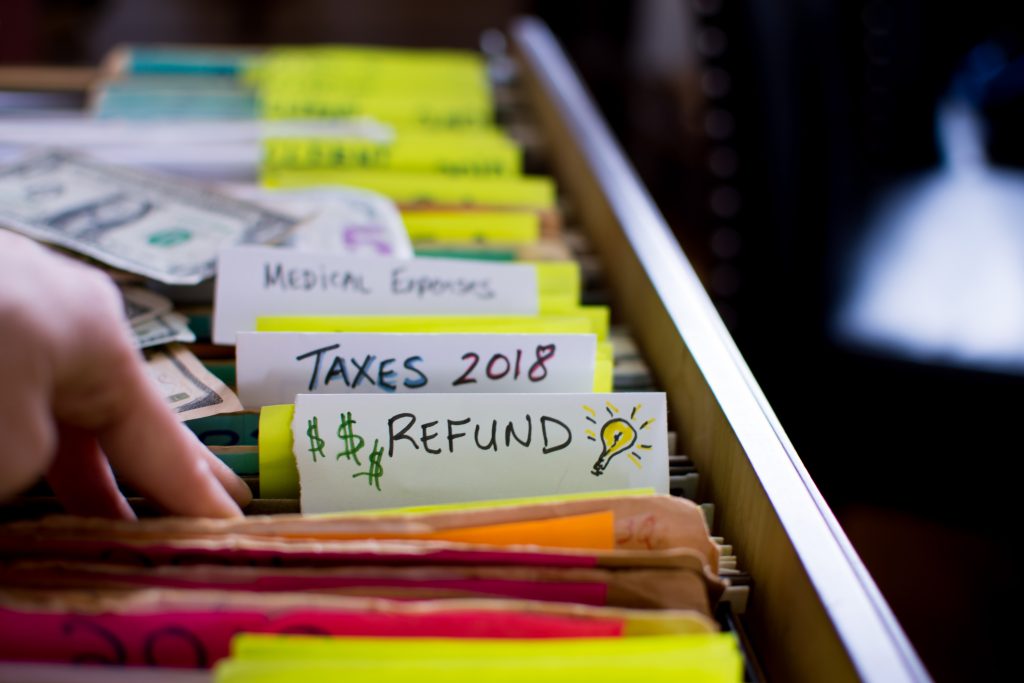 It’s that time of year again—tax time. If you haven’t already filed, you have until April 17, 2018 to do so. Yes, you read that right. The deadline to file is April 17 this year instead of April 15. Due to the fact that April 15 falls on a Sunday, and Monday is Emancipation Day, which is a legal holiday in the District of Columbia, the deadline for filing your taxes is extended until the next business day. Hopefully you have made estimated payments or had your employer withhold enough from your paychecks so that you don’t owe any taxes—and maybe are even lucky enough to get some money back. So what is the best use of your tax return? Here are 5 smart things to do with your tax return this year:
It’s that time of year again—tax time. If you haven’t already filed, you have until April 17, 2018 to do so. Yes, you read that right. The deadline to file is April 17 this year instead of April 15. Due to the fact that April 15 falls on a Sunday, and Monday is Emancipation Day, which is a legal holiday in the District of Columbia, the deadline for filing your taxes is extended until the next business day. Hopefully you have made estimated payments or had your employer withhold enough from your paychecks so that you don’t owe any taxes—and maybe are even lucky enough to get some money back. So what is the best use of your tax return? Here are 5 smart things to do with your tax return this year:
Open an IRA
Even if you already contribute to your employer’s 401k plan, you should also consider opening an IRA, or Individual Retirement Account. A Traditional IRA can give you an additional tax break each year that you contribute because you are using after-tax dollars to fund it. Or, if an additional tax break now is not as meaningful to you, opening a Roth IRA may be a good option for you, as those can offer tax-free growth on your investment. To determine which type of IRA is right for your situation, you may want to meet with your financial advisor or tax accountant and discuss your options.
Pay off credit cards
Credit card debt can really weigh down your budget each month—and even your credit score. If you have large balances on credit cards, you probably are also aware of the high interest rates that go along with those as well. Using your tax refund to pay down a large credit card debt will reduce the amount of interest that you are paying each month on revolving debt, as well as reduce the monthly payment. Additionally, if you pay down a credit card or pay it off entirely, you may see an increase in your credit score too!
Start an emergency fund
Most experts believe that everyone should have at least 3-6 months of living expenses set aside in an emergency fund. In case something unexpected occurs, such as an illness or accident, and you are unable to continue going to work or generating a paycheck, an emergency fund will allow you and your family to still be able to cover your typical monthly expenses during that time. Even if you don’t have enough to cover the entire 3-6 months of living expenses from your tax return, at least you can start a savings account to give yourself a financial cushion, should an unexpected expense arise. One of the easiest way to make this a regular habit is to set aside money automatically from each paycheck into a separate savings account.
Pay down your mortgage
Your mortgage is probably one of the largest debts that you will ever take on—and one of the biggest monthly expenses. While such a large debt taken out for such a long period of time can seem overwhelming, you can actually cut down on the compounding of the interest and the amount of interest that you pay overall by simply making one extra payment each year. Since you are cutting down the amount of compounding interest, that means that you will be able to pay off your mortgage loan quicker than the original term that you took out. Using your tax refund is a perfect way to make that additional payment each year, without increasing your monthly budget.
Save for college
With so many things that pull at your budget each and every month, it can be hard to fit in those “extra” things—such as a college savings account for your child. It may not be a pressing monthly bill, or even an expense that is in your near future; however, taking your tax return and opening a separate college savings account will definitely help ease your budget when you are getting ready to send your kid off to college and getting that much closer to retirement age. And don’t worry, you won’t lose your investment if your child decides not to pursue a higher education. Talk with your financial planner to discuss additional ways to utilize those savings.
PLEASE NOTE: The information being provided is strictly as a courtesy. When you link to any of these web-sites provided here, you are leaving this site. Our company makes no representation as to the completeness or accuracy of information provided at these sites. Nor is the company liable for any direct or indirect technical or system issues or any consequences arising out of your access to or your use of third-party technologies, sites, information and programs made available through this site.












You must be logged in to post a comment.